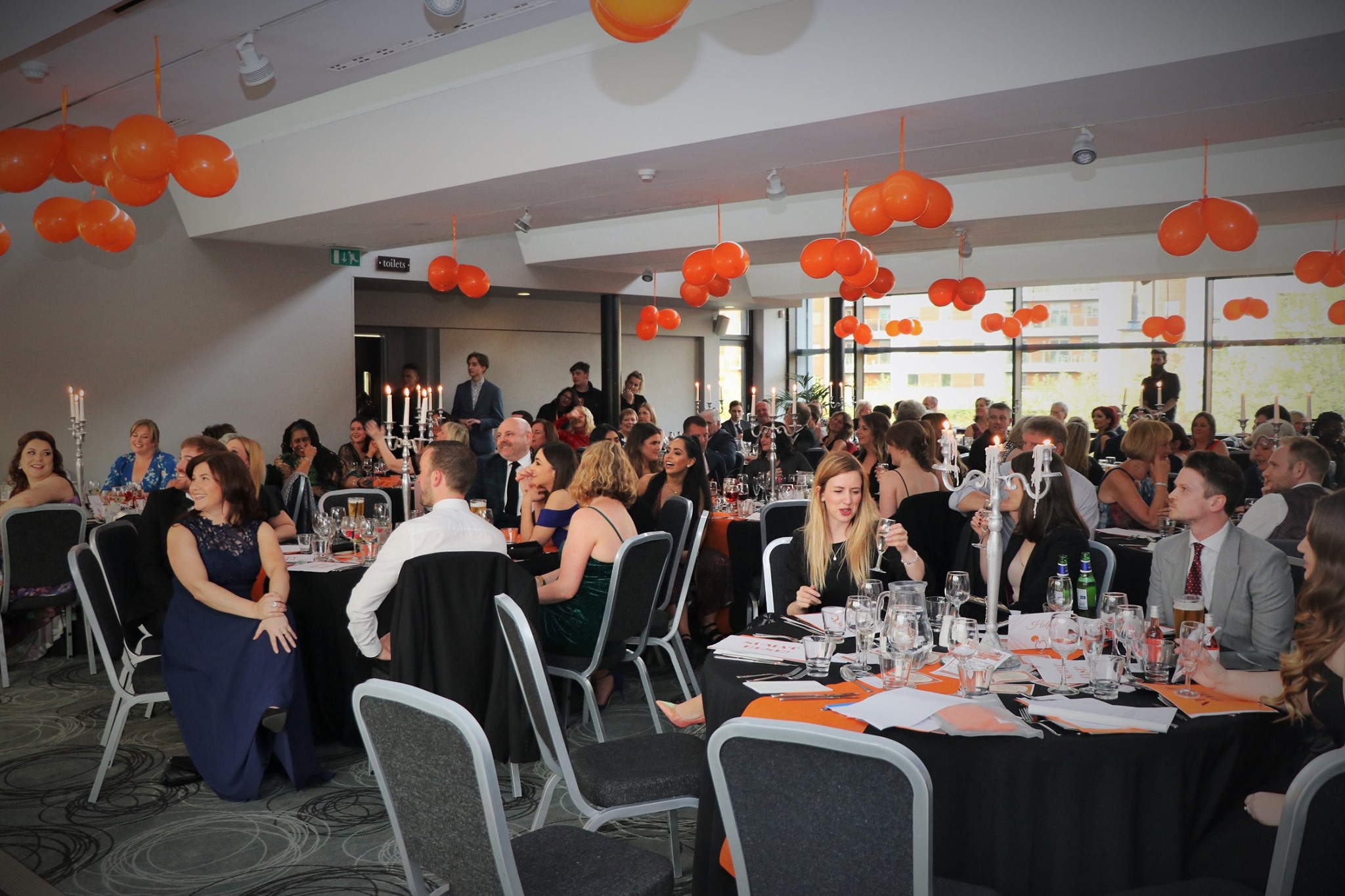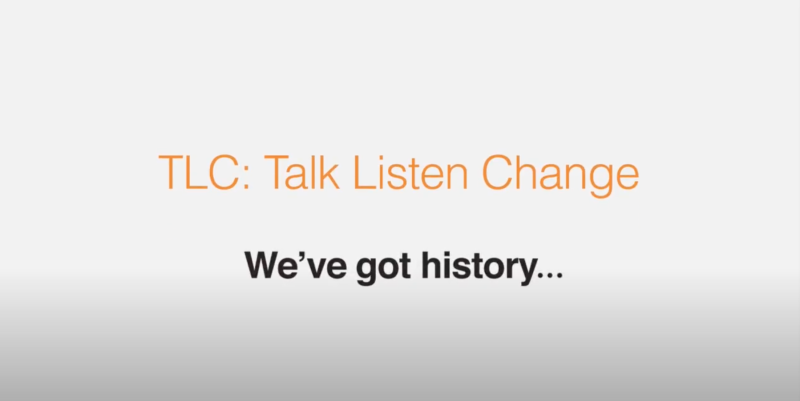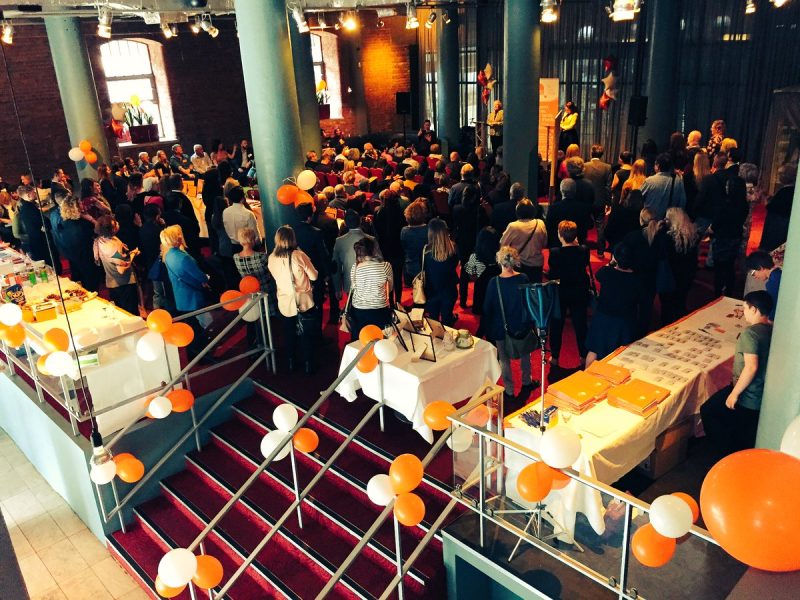
Michelle's Other Blogs
Check out the other topics our CEO Michelle has written about

To celebrate our 2nd birthday, I decided to sit down to chat with our CEO, Michelle Hill.
To celebrate our second birthday, I decided to sit down with our CEO, Michelle Hill, to talk about what it’s like forming a new charity and where we’re at two years later.
We officially launched on April 1st 2017. Prior to this, I had worked at the charity, then known as Relate Greater Manchester South, for three years, and had been bought in by the board with a very clear remit – do something different.
Although at that point we had been Relate for 35 years, we had a consultation period with staff and felt we could better serve local communities as an independent Greater Manchester charity. We’re a membership organisation, so we voted on the 5th December 2016 and it was a unanimous decision to leave Relate.
It’s a bit of a weird one because technically you launched from scratch, but you also had all this history. How did that work? That can’t be easy…
No, it was probably the most challenging and exhausting 4 months of my life.
With the old and the new, we took the approach of: if it works, it comes with us. If it doesn’t, we start from scratch. I’d already been here a few years so had a good idea about what was working and what wasn’t.
So we took our services, our staff, our charity number, our governance structure with us. But we started from scratch on our IT system, phone system, case management system, outcomes system, website, brand, policies and procedures.
We saw it as an opportunity to not just re-name, but launch completely.
If we don’t keep them, we would have lost all our documented history. Our positioning from April was that we had the energy and creativity of a start-up, but the history and experience of an organisation that’s been running since 1981.
Keeping those numbers meant practically if we were bidding for new pieces of work or organising financial arrangements, we’ve got years of financial accounts to use. Starting from scratch would have thrown us out of loads of funding opportunities moving forward.
“The people working on the change eventually crashed and burned, finances were worse than predicted and we lost 2 or 3 members of staff” – Michelle Hill
The board were really engaged and the overseers of the work. I led the implementation project. We had a very detailed project plan that we updated daily and the team was a small number of people from across the organisation. At that time we were really short on the ground for infrastructure posts, so it was really whoever was in the organisation at the time. Basically an all hands approach for anyone not doing service delivery.
It was 2 very different experiences really.
The run up to April 2017 was really exciting, really hard work, ridiculous hours, multi-tasking to a level I had never done before. But there was a lot of energy and enthusiasm based on the fact we had the 1st April to move towards.
The 1st April was a Saturday, but we then came in on Monday morning and we had balloons, bunting, a birthday cake and flowers. That emotional high lasted until about… the 12th April, the day after our external launch.
Our external launch was on the 11th April, we had this amazing event, beyond our wildest dreams, more people than we imagined had come, all members of staff, volunteers and partners were there.
Then on the 12th April, me and a few other people crashed and burned. We had pushed ourselves as hard as we physically and emotionally could.
Financially it made sense, our new financial year begins on 1st April, so it was a natural fit.
Also, having made the decision to go there was a real impetus to change… we could have spread the work out for years if we wanted to.
The first year was really hard. Financially we knew we had to invest heavily to become TLC so we knew it was going to be difficult. I felt this pressure on my shoulders all year about money. We predicted a financial deficit, we achieved a deficit, but the pressure of trying to do better was difficult.
We did worse than we expected, some of the costs were more than we expected. You can’t research the cost of re-launching an organisation that already kind of exists. We put contingency fees in, but it wasn’t enough.
We also realised on the 1st April how much we hadn’t done. We had bugs in our case management system, we had to re-modify some pathways in terms of data. Our new website launched but we weren’t happy with some aspects, so it went on hold for 5 months to do more work on it.
We also implemented a new staffing structure at the beginning of April 2017. Some of it worked really well and some of it not so well, so we had to refine that as the year went on.
Yes, it was tough on our counsellors. We had moved from being recognised as a counselling organisation so were inundated with referrals as Relate, but from the beginning of April we started to be really quiet as TLC. It took us until about October to start picking up again.
That had a massive impact on morale.
So we’d gone on this real rollercoaster of being really high, to really quite low.
Yeah, if we’d had got it wrong. The whole thing was at risk really.
I think the most difficult was how the organisation… FELT. How it felt in the 6 months after leaving.
I’m somebody who’s very affected by how I feel and when we started to see that we needed a different website, the case management system wasn’t working, we weren’t getting the referrals through for counselling that we wanted… there was a huge dip in morale.
But for me… I was still running around working as hard as I could to turn it round. It felt really hard to experience that disconnect between the enthusiasm we’d had leading up to the launch and then afterwards feeling “gosh, okay… this is really, really hard”.
I think it was always going to be a big high then a bump to the ground.
I think we could have done things differently, but it’s hard to say that when I know how few resources we had. In an ideal world, we’d have done things a bit slower and we’d have had more capacity to put into communication.
I would have put in more face-to-face time with staff. Due to the new organisational structure, I wasn’t as available as I had been up to April. It didn’t mean other people weren’t available, it just meant I wasn’t. Although we communicated and explained that, I don’t think people were ready for it.
In hindsight we could have communicated things differently, but I’m not sure the actions would be much different as we did what we did out of necessity.
“We are bucking the trend of charities struggling and we’re not going on pause, we’re going to keep growing because we have to” – Michelle Hill
We’re now at the end of Year 2 and starting our Year 3 as TLC and it’s like we’ve had the high and the low… now we’re on the high again. So the easiest bit has been how quickly our partners in Greater Manchester have recognised TLC and what we do and actually how quickly our services have begun to grow.
I know we are bucking the trend a bit with charities who are struggling financially and we are really tight in terms of what we deliver, we only get very small amounts to cover costs here and there but in terms of the number of services… they are growing rapidly.
I guess because what we deliver is unique. We’re the only relationships charity in Greater Manchester, we’re the only one doing the wrap-around support. There’s other charities doing bits of it, but not all of it.
Our uniqueness comes from doing everything as a whole and being positioned as a Greater Manchester charity has been a very good move.
Definitely. The problem now is we’ve got growing pains. We’re growing so quickly that we’re running underneath the surface to keep up.
Okay so you launched… there was a big dip, you struggled, now it’s good again… what was the turning point, what changed?
I don’t think it was one thing.
Firstly, the financial pressures began to ease when the 31st March 2018 hit as we’d got through the first financial year of TLC. Some of that was psychological for me because the board had signed off on a deficit, but I always wanted to beat it. So once that financial year was gone, the pressure went too. This year we’re budgeting for surplus again, so that feels better.
In terms of public recognition, that started to change September/October 2017 when we re-launched the website and we received a grant from GMCVO for some work around marketing for our counselling services. This meant we began to get busy, so morale started to increase which we needed because people were starting to worry if we had made the right decision.
We’ve also made some staffing changes in the last few months, which I think has made it easier.
We have taken a “test and learn” approach to staff structure. I don’t think we’ll actually know what works because we don’t intend to stay static, there isn’t going to be a pause for TLC. I just don’t think we can. It’s such a challenging environment for charities at the moment and the services we offer are so needed, we just can’t afford to stand still.
“There aren’t many charities who have a base in the North and can impact thousands of people, but I feel we can do that” – Michelle Hill
There’s been so much that’s enjoyable! Going to the charity awards and hosting the fundraising ball have been fun.
But the best bit, maybe not ‘fun’ as such, but the odd moments where I get to stand back and reflect on how far we’ve come is really rewarding.
The long-term plan is to create a relationships charity with a Northern base, that looks after safe, healthy, happy relationships. There aren’t many charities who have a base in the North and can impact thousands of people, but I feel we can do that.
We also want to be a charity that is a really good employer – we want people to want to work for us, we want staff to stay because there are progression opportunities. We want to create a positive experience not just for the people we support, but also the people who work and volunteer for us.
The next couple of years are about having all TLC services in all 10 local authorities of Greater Manchester and to develop an infrastructure that works. We need to make sure people aren’t running around doing 3 people’s worth of jobs. We also need to develop some space to reflect and be creative.
Make sure that you and your board are on the same page. You need to have good support and challenge. The board need to really understand the decisions you’re making and the financial cost to doing it. That way, you never feel like you’re doing it alone.
Secondly, get a network of peers around you who aren’t connected to the organisation. People who you can be really honest with about the highs and lows. That support is critical.
Lastly, build a staff team that share the vision of what you’re doing, across the whole organisation.
Any advice I give would be all about people – have people around you, at every level. Also remember it’s really exciting, it’s really rewarding, but it is hard work. You can’t do it by yourself.
That’s really hard, because I really think we’ve done the right thing. We’re in a much stronger position than we were 2 years ago.
If I was looking back and giving the advice to myself… I would still say go for it. A couple more hundred thousand pounds would have been helpful, a dedicated project manager would have been nice but ultimately… we’ve bought our strategy to life and it’s working.
We stand up in meetings and talk about it and we know it’s right because people GET it.
We’re not a big charity, we don’t have fundraising teams and big marketing teams, we’re now in the awkward squeezed middle of the charity world, but we have big ambitions.
I think we made the right decision, and I would always say to anyone else: go for it, do it.
We think you may also be interested in

Check out the other topics our CEO Michelle has written about

Our unique background includes 40 years of experience

For me TLC will now always mean TLC: Talk, Listen, Change – our relationships charity